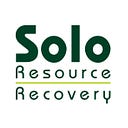Grease Trap Waste Management: What You Need To Know
In the food service industry, proper grease trap waste management is crucial for maintaining good sanitation, preventing environmental contamination, and complying with regulatory requirements. Grease trap waste, a byproduct of commercial kitchen operations, poses significant challenges if not handled and disposed of correctly. This article aims to provide an understanding of grease trap waste management, and highlights the roles of a grease trap cleaner, professional waste disposal services like the ones that Solo provides, and the importance of adopting sustainable practices.

Understanding Grease Trap Waste
Definition And Composition
Grease trap waste refers to the accumulation of fats, oils, grease (FOG), and food particles that accumulate in the grease trap system. It consists of solid and liquid waste materials, which, if not properly managed, can lead to clogged plumbing, foul odours, and environmental contamination. The composition of grease trap waste can vary depending on the type of food service establishment and the volume of cooking activities. It often contains residual food particles, cooking oils, fats, and grease, all of which contribute to the buildup in the grease trap system.
Formation And Accumulation
Grease trap waste is generated during food preparation, cooking, and dishwashing processes. As food is prepared and cooked, oils, fats, and grease are released, along with small food particles. When these substances enter the drainage system, they cool and solidify, sticking to the interior surfaces of the grease trap. Over time, the accumulation of these materials can impede the proper functioning of the trap, leading to blockages and potential damage to the plumbing system. Therefore, regular maintenance and cleaning of the grease trap are necessary to prevent such issues from occurring.
The Role of A Grease Trap Cleaner
Importance Of Regular Cleaning
To ensure the optimal performance of a grease trap, regular cleaning is essential. Solo can provide a professional grease trap cleaning service which will play an important role in maintaining the integrity and efficiency of the system. We have the expertise and equipment to remove accumulated waste, prevent clogs, and minimise the risk of costly repairs or replacements. Regular cleaning schedules are recommended to prevent excessive buildup and maintain a healthy grease trap system.
Cleaning Process
During a typical grease trap cleaning, our grease trap cleaner will inspect the system, remove the accumulated waste, and clean the interior surfaces. They will use specialised tools and techniques to remove the solidified FOG and food particles, ensuring that the trap is thoroughly cleaned. Additionally, the cleaner will check for any signs of damage or malfunction that might require further attention. The cleaning process may also involve the use of environmentally friendly cleaning agents to further enhance the effectiveness of the cleaning and ensure that the grease trap is left in optimal condition.
Waste Disposal Services
Proper Disposal Methods
Grease trap waste cannot be disposed of through conventional means, such as pouring it down the drain or into the sewer system. Instead, it must be handled and disposed of in accordance with local regulations and environmental guidelines. Solo specialises in the safe removal and disposal of grease trap waste, ensuring regulatory compliance and preventing environmental harm. Our services follow strict protocols to prevent the release of contaminants into the environment and adhere to the guidelines set by regulatory bodies.
Environmental Considerations
Grease-trap waste contains contaminants that can pollute water bodies and harm ecosystems if not properly disposed of. The high concentration of FOG and other organic materials can deplete oxygen levels in water bodies, leading to adverse effects on aquatic life. Solo recognises the environmental impact of grease trap waste, and as a responsible waste services provider, we utilise environmentally friendly practices to minimise its impact. This may include recycling and treating the waste to separate and repurpose components such as fats and oils, which will reduce the overall environmental impact of the disposal process.
Adopting Sustainable Practices
Waste Minimisation Strategies
To reduce the volume of grease trap waste generated, businesses can implement waste minimisation strategies. These strategies focus on reducing the amount of FOG and food particles that enter the grease trap system. Educating staff on proper disposal methods, such as using strainers to catch solid waste, can help prevent excessive accumulation. Additionally, utilising grease traps with larger capacity can accommodate larger amounts of waste, which will reduce the frequency of cleanings and the potential for clogs in the system.
Recycling And Reuse
Grease trap waste can be recycled or repurposed in various ways. There is potential to collaborate with facilities that convert grease trap waste into biofuels or other useful products. By repurposing the waste, businesses can reduce their environmental impact and potentially create additional value. Recycling and reusing waste not only contributes to sustainability efforts but can also offer potential cost savings in terms of waste disposal expenses.
Proper grease trap waste management is essential for commercial kitchens to maintain cleanliness, comply with regulations, and protect the environment. By understanding the role of a grease trap cleaner, employing waste disposal services like the ones that Solo offers, and adopting sustainable practices, businesses can effectively manage and mitigate the challenges associated with grease trap waste. Prioritising responsible waste management not only benefits the business but also contributes to a cleaner and healthier ecosystem for everyone. By implementing proper grease trap waste management practices, businesses can ensure the longevity and functionality of their grease trap systems while safeguarding the environment for future generations.
To arrange for a grease trap clean and disposal please give us a call on 1300 GO SOLO (1300 46 76 56) or send us a message here.
